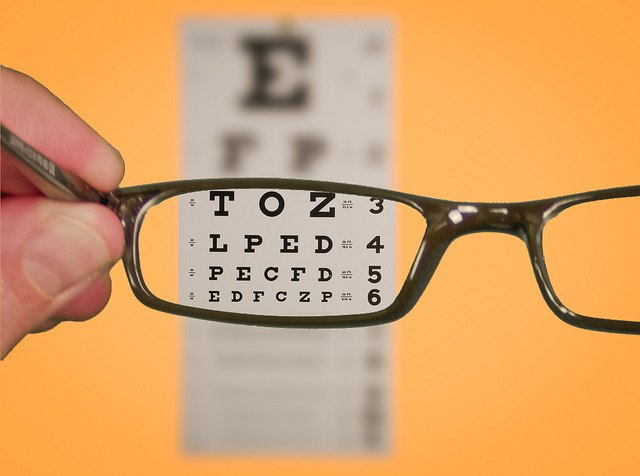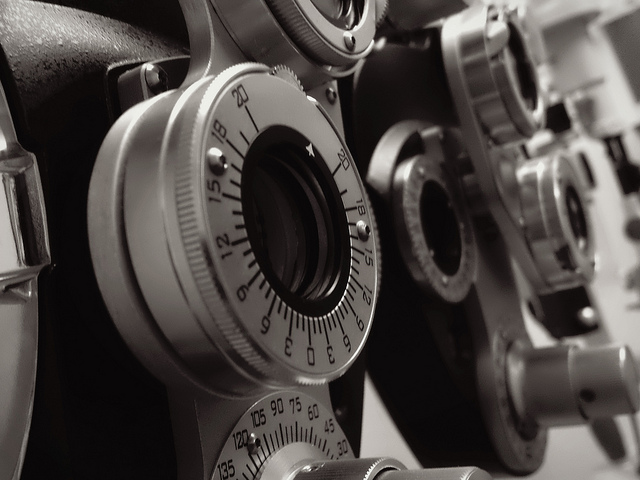When the print gets a little
blurrier, whether from age or too much screen time, it’s time to see your eye
doctor. But just what type of eye doctor do you need? 
There
are three distinct types of eye care or vision care providers. There’s the
optometrist, the ophthalmologist, and the optician. Each one has separate and
unique abilities and provides separate and unique services. There is a bit of
overlap in optometry and ophthalmology, but for the most part, they are
distinctly different. Let’s look at just what those differences are.
Optician
The
optician is the least trained of all vision care professionals. Most opticians
hold a certificate or diploma, most often from a community college or other
business or training school. Opticians can’t perform any type of exam. In fact,
everything they do really relies on optometrists and ophthalmologists.
An
optician is the professional that measures your face and eyes to give you the
best fit and use for your glasses. They also sell, adjust, and, often times,
repair eyeglasses. In some states, they can become certified to sell and assist
you with your contact lenses. Opticians are the professionals in the eyeglass
place at the mall or supercenter store. It’s their job to fill the corrective
lens prescriptions written by other vision care professionals after you’ve been
examined.
Optometrist
An
optometrist is responsible for your routine and basic vision and eye care
services. Optometrists actually do not have a medical degree. Instead, after a
four-year college degree, they go on to four years of training in optometry.
They can perform routine eye
exams and test the accuracy of your vision. They can write you a prescription for
corrective lenses or contacts. Optometrists can also offer vision therapy
services for those with low or failing vision. They can diagnose common vision
and eye ailments and conditions such as cataracts, glaucoma, macular
degeneration, diabetic retinopathy, and conjunctivitis (pink eye). They can
prescribe treatments for some of these conditions, and provide referrals for
the treatment of others. Typically, they will refer you to an ophthalmologist. 
Your
optometrist will also be an active partner in pre- and post-operative care,
should your eye condition require surgery. However, your optometrist can not
perform that surgery.
Many
optometrists set up solo practices or small practices with one or two other
optometrists. They must become licensed by their individual state before they
can see patients, typically through a standardized testing program. This
accounts for the differences in the types of treatments and services they can
offer.
Ophthalmologist
Ophthalmologists
can provide total vision care—everything from routine eye exams and glasses
fittings to complex surgery on the eye itself. Ophthalmologists can also be
involved in researching various treatments or conditions to develop new
treatments. The ophthalmologist has a medical degree. After attending medical
school and doing a one-year internship, the prospective ophthalmologist spends
at least 3 years in a residency program specializing in ophthalmology. Most ophthalmologists
choose to become board-certified, as the certification process allows them
practicing privileges at specific hospitals and clinics. However, some choose
to forgo the rigorous oral and written testing involved.
Many ophthalmologists
go on to acquire additional training in a specialty field, such as pediatric
eye care, glaucoma, retinal or corneal conditions, corneal or lens transplants,
refractive surgery, and neurological ophthalmology (treating the nerves of the
eye). All of this training makes your ophthalmologist better able to recognize
and treat the conditions that can affect your eyesight.
They
can also spot potential diagnoses when reading the findings of an optometrist’s
examinations. Another benefit is that your ophthalmologist can often tell when
another medication you may be taking is affecting your vision or if there is
another underlying cause. The fact that ophthalmologists can perform eye surgery
and vision-correcting procedures means that they often see patients with more
severe conditions, or with rare or unusual conditions, giving them a wealth of
insight into various eye problems.
Many
ophthalmologists only take patients by referral, while some do set up open
practices.
All in
all, a good way to keep the three eye care professionals organized in your
mind’s eye is this:
- Optician – No medical degree; helps fit
your glasses and fills new glasses prescriptions
- Optometrist – No medical degree; performs
your routine eye exams and prescribes new glasses
- Ophthalmologist – Medical degree; can provide
complete vision care, including surgery
Why See the Eye
Doctor?
Vision
care is not something to be taken lightly, nor is it something to neglect. You
should receive regular eye exams and follow through with any therapies,
treatments, or corrective lenses that your eye care provider prescribes.
A
referral to an ophthalmologist by an optometrist does not always indicate that
you should have something to be nervous about. It simply indicates that there
is something going on that needs the attention of someone better trained and
experienced. Whether an optometrist or an ophthalmologist, both kinds of eye
doctors rely on the skills and services of an optician—in most cases, to
provide you with the proper frames and lenses to correct the problem they’ve
uncovered.
So
when that print gets too small (or your arm gets too short), or that darn
screen just won’t stop blurring together on you, get to an eye care
professional. You’ll be seeing so much more clearly in the future for having
done so.
Photo credits:
“Vision Of Eyechart With Glasses” by Ken
Teegardin
is
licensed under
CC BY-SA 2.0
“Another Day, Another Eye Exam” by Nomadic Lass is licensed under CC BY-SA 2.0